Transition Time: Is There a Place for Classic Adventure Games Anymore?
We sat down for a chat with Claas Wolter from Deadalic Entertainment – one of the biggest developers of adventure games. It made us think about the state and evolution of this genre.
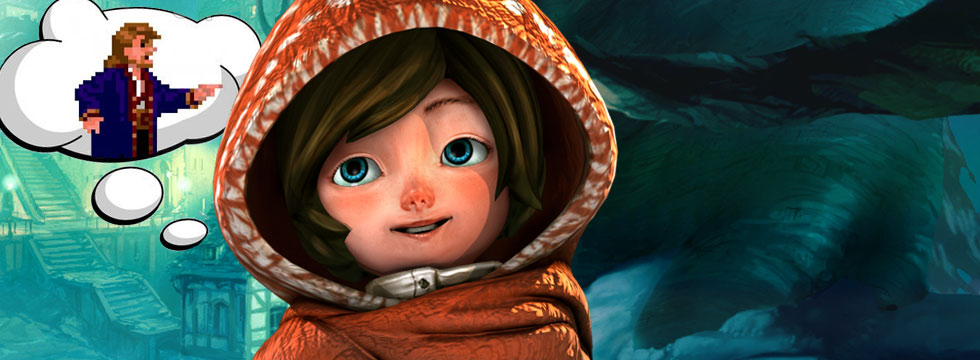
The undisputed success of the Telltale Games’ The Walking Dead, has proofed that the adventure games are not targeted at the genre’s fans, exclusively. Telltale have brought something totally new to the table, leaving most of the characteristic features behind. This interactive series was obviously a total win, which hopefully encourages other creators and publishers to be a little bit more daring.
The point-and-click classics became a niche, there’s no denying. It seems they’re gonna stay that way for a while. Although there’s a very loyal fanbase of the Wadjet Eye Games or King Art Games' productions, we have a hard time spotting even one classic title on the bestseller lists. From the very beginning of the 21st century the adventure games were left in a sort of limbo. The whole idea of such games, however, remained unchanged – they are still packed with puzzles and two-dimensional, hand painted backgrounds, which basically means hours and hours of great fun. Why change something that is considered classic, like Monkey Island or The Longest Journey? Well, the old believes sabotaged each and every shot at changing those redundant mechanics and ways of telling stories.
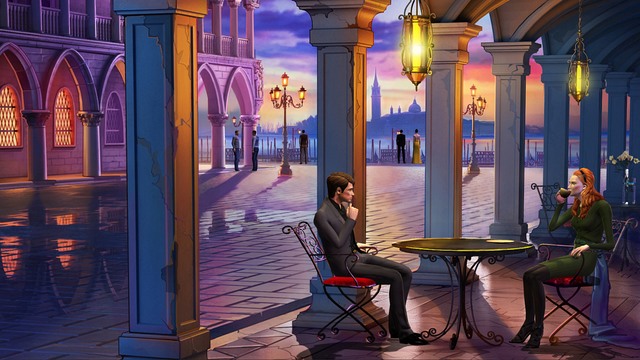
Meeting Claas Wolter of a German company Daedalic Entertainment was not only a nice opportunity to see some of their upcoming games, but also to reflect on some changes that need to be made to keep the genre interesting. There were plenty of examples lately, where we could see less puzzles and inventory management – which were supposed to be core elements of every adventure. You’re not gonna think too hard, while playing Gone Home, The Walking Dead or Dear Esther. Instead, you have to deal with your emotions, as well as the story that is continuously developing. In some ways, the mood and the gripping scenarios are making up for the easy tasks you're facing. The lovers of the ‘90s classics were whining, of course, but the ratings were high enough to formulate one thought: the public and the critics are still up for the adventure games, if only adventures themselves are game for that as well. There’s definitely hope, because from aforementioned titles only Dear Esther haven’t reach the magical 85/100 score on Metacritic. Even Claas ventured that big-budget productions could profit from such modern, adventurous twist: “There are a lot of people that don't need the shooter parts in The Last of Us.”
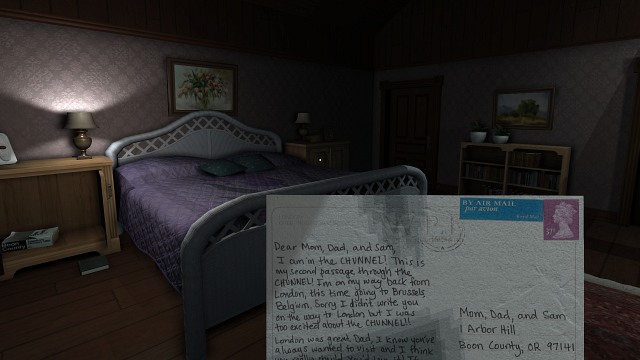
“We got a lot of mixed feedback, when we announced Silence and when we announced that we’re trying to design puzzles a little different. We had the core audience going like „Oh no, you're destroying the genre!” – said Claas. The company responsible for such titles like The Whispered World, the Deponia trilogy knew, however, that it's not a card vote. “We always thought they were guys like us, who grew up on good old Monkey Island and we never wanted to lose them. […] Once the YouYubers has started, we realized that there's another audience for adventure games. Way younger audience, that we had never dreamt of”. Wolter admits that we need more time before those two groups shake hands. He's still optimistic, though – if someone plays adventures his whole life, he won’t stop doing it just because there is no inventory screen. It makes sense – look at some experimental choices, like Quantic Dream's Heavy Rain focusing on contextual actions and not just subjects. Has it influence its ratings? Oh, sure – but in a good way.
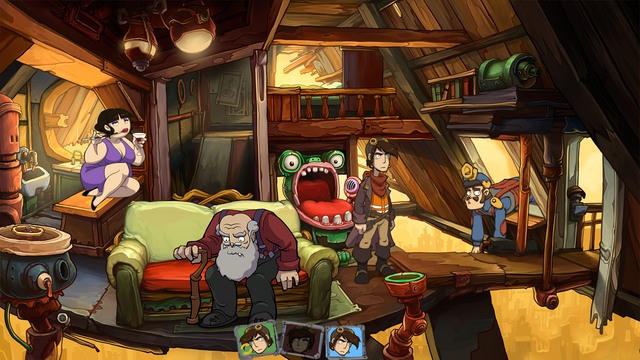

Daedalic Entertainment is one of the biggest German companies creating computer games. It was established in 2007, with a headcounter placed in Hamburg. It gained popularity after delivering some high-quality adventures, like The Whispered World, the Deponia series or The Dark Eye: Chains of Satinav. But Daedalic's philosophy is not only about making big titles. Currently, it's reaching toward smaller companies and bringing their awesome work to light.
“I think these days are good time to open the adventure genre up. There is interest in storytelling games as we can see from The Last of Us, from Beyond: Two Souls, even from GTA V” – tells us Wolter, thinking about the condition of video games industry. The old school productions lost themselves in creating intricate puzzles; it's kind of funny now. And surely, Claas is laughing as well: "I was playing [adventure game] many years ago, where I had to open the door. I was playing hours and hours, not finding the right solution, so I called developers for help. They told me: „Just look under the doormat. There is the key”. This puzzle was so straight forward, but adventure games taught me NOT to look under the doormat”. This story is a good one, as it points out that the genre that used to focus on logical thinking only, is everything but logical now. Some of the more traditional developers would like to see their players solving the mysteries in a way that would stunned even McGyver. Still better than giving them obvious clues, right? Well, after all there are no real adventure games without some super crazy puzzles to solve.
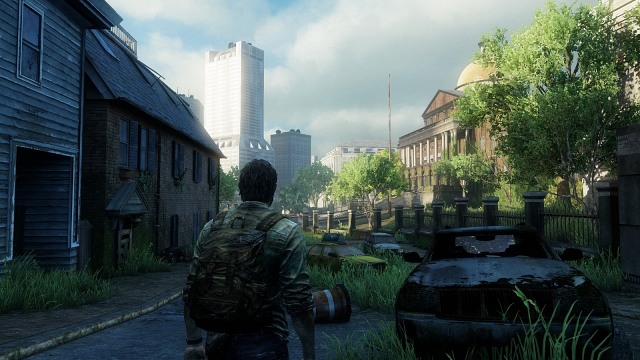
Telltale Games took a risk. By taking an unusual path it was rewarded with loads of awards and positive reviews. Suddenly it turned out, that the gamers still have a soft spot for the adventure games. Apparently, all you need is winning their hearts with some gripping storyline and not burdening with all these difficult puzzles. The success of The Walking Dead definitely increased their popularity. We finally got the adventure that you can play for, say, half an hour and carry your choices from episode to episode. That being said – there were sill some old folks who’ve found its level of difficulty not impressive at all. Indeed, the game required a minimal involvement from the player. Yet the rates and the number of sales spoke for themselves. The first season of The Walking Dead was like a breath of fresh air for the whole genre.
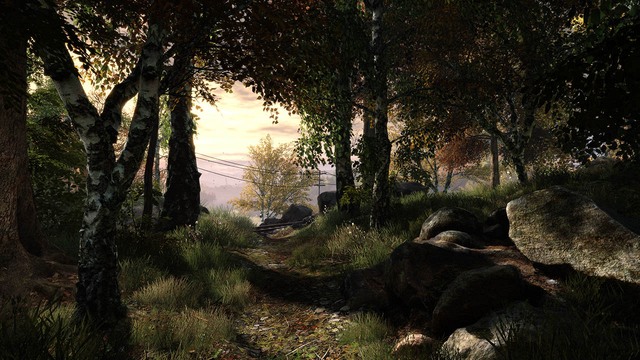
It doesn't mean that Daedelic Entertainment wants to follow that trusty pattern and go easy on us. “On that map (of adventure genre) Telltale Games are somewhere here, classic adventure games somewhere there and our Silence maybe in the middle” – says Wolter, although he's not sure himself what sort of future awaits Daedelic. “I can't tell you that there's one direction for the future games, we’re currently working around with all kind of things” – he adds and points out that moral choices are not the only possible direction for adventure games. The Vanishing of Ethan Carter, for example, is not all about the point & click mechanics, but also exploration of the beautiful world, carefully designed using photogrammetry technology. Most of the companies that make adventure games will have to find some new ways of distinguishing themselves from the crowd or accept the role of a mare craftsman who provides typical products that belong to a shrinking niche. For its upcoming titles Daedalic tries to implement unusual elements, but also remain quite true to the classics.
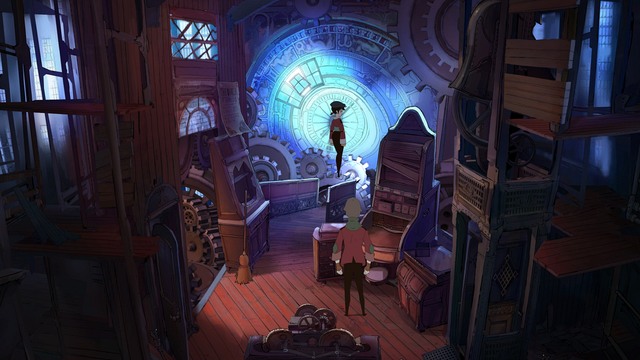
The Devil's Men is by far the most innovative example. It's a point & click adventure set in the Victorian Era with a little steampunk-ish vibe to it. We follow two young women that were raised in the completely different environments – one of them on the street (working hard on her thief skills) and the second one in a wealthy family. They join their forces to solve a mystery of the murders committed by the Devil’s Men, which is a bunch of rather controversial scientists. The exciting plot is something we would expect from every decent adventure. What's the most interesting, however, is when we try to interact with other people. The way we talk with our peers can influence the storyline. And it's not only a theory – if we offend someone, he or she might refuse to cooperate with us. Wolter has showed us a situation in which we didn't get along with one bloke that was assisting us. He was doing some minor work that in the end led to his death. The representative of Daedelic told us, that if we were a bit nicer to him, he would stay with us till the very end of the game. Apparently, there are a lot of such cases in the Devil's Men. Every time someone dies – and there’s a high probability such thing, because of the choices we make – the player himself is the one to blame.
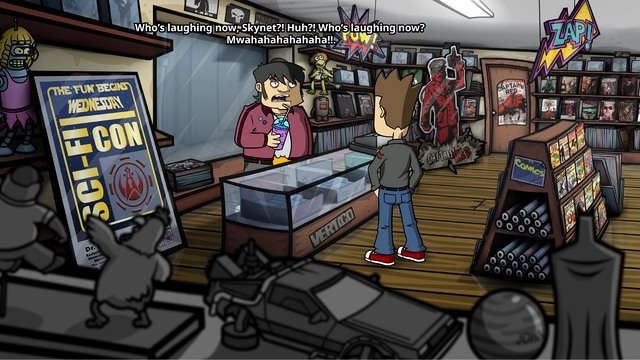
Randal’s Monday is a classic point & click adventure. What makes it unique, however, is the content. In this comic-like set up we won’t find a serious plot or another dark investigation, but the absurd story of the exceptionally rude bloke called Randal. His friend commits suicide because of him and now Randal is cursed: he has to live through the same fateful Monday again and again and again, doing everything in his power to fix his mistakes.
The most striking thing in this game is the amount of pop-culture references from the 1990s and early 2000s. There are posters everywhere, the ring from the Tolkien's trilogy (or its lookalike) is featured as well, and the names of the metro stations were pulled form the fantastic worlds... Even Stan Lee, the co-creator of Marvel, makes an appearance, for crying out loud. Each and every detail is basically a wink at the fans of some universe. Basically, there's a reference to everything - the movies, TV-series or simply other games. The only downside is the fact that the Spanish team Nexus hasn't tried to make the jokes more sublime. And they are pretty straight forward, you know? The whole thing is not as fun as it could've been. What we need are the references that only someone from the fandom could've spot. Randal's Monday would be totally awesome that way, don't you think? This does not change the fact that the experience is a great fun in itself.
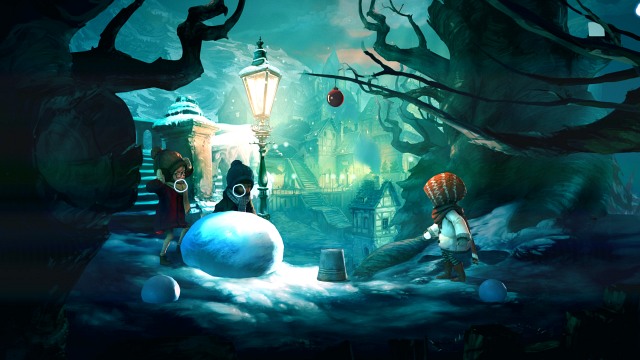
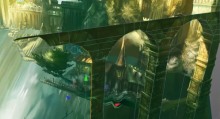
You can tell from the start, that The Whispered World 2 is quite different from the Daedalic’s former projects. It’s because of a clever use of 2D graphics in 3D environment. That special feel of the adventure games is still out there, and scope of changing the perspective, brings the whole new dynamic to each scene.
The last game presented by Claas was Silence. It's The Whispered World's sequel, so it's not something totally groundbreaking for the genre. It brings some new ideas, though. We visit the fantastic, yet dangerous world with a company of two characters – the siblings named Noah and Renie. Each of them has special skills, as well as weaknesses, so the player could use his head and make a choice of who's the most likely to do a better job. That's not the only change, however. The new design makes everything look like an artwork – it could easily be mistaken for a Pixar or Disney’s production.
Silence is the best example of what Daedalic wants to support nowadays. It wants to be a platform for both the classical and not so demanding adventures. "We want to create puzzles that are part of the story. On the other hand we don't want to create game that has no gameplay" – says Wolter and we could see what he means while watching some parts of the game. The puzzles are equally important as dialogs or the characters. We can shape them by giving them the equipment - some subjects that are multi-functional, like Spot that is able to shift its shape into many varieties.
Daedalic Entertainment is an example of the company that decided to leave a safe niche to find some new ways of creating original adventure games. That’s a risk you just have to take, or some independent developers will do that for you. Digital distribution and the platforms like Steam make publishing lot easier especially for independent creators. Therefore the other, much bigger studios need to make a real effort to keep up. Being open-minded is the best choice out there.
There are many people who think that changes are necessary. The critics are on top of them, as well as the gamers themselves. They’ve stopped being kind towards developers and their exorbitant puzzles that lately started to raise some eyebrows.
Studios like Daedalic understood that reaching a wide audience can be done only be taking some risk and challenge the status quo. Telltale Games has made the first step, but it's not moving forward. Its latest productions, like The Wolf Among Us or the second installment of The Walking Dead have the same, safe formula. Therefore, it’s not a surprise that these titles weren't greeted by the players as warmly, as they could've been. They are great games, you know, but how long can the Telltale domination last? The competition never sleeps – the independent developers are usually extremely innovative and not fearful at all. They can mix things up and have a shot at redefining the whole genre.
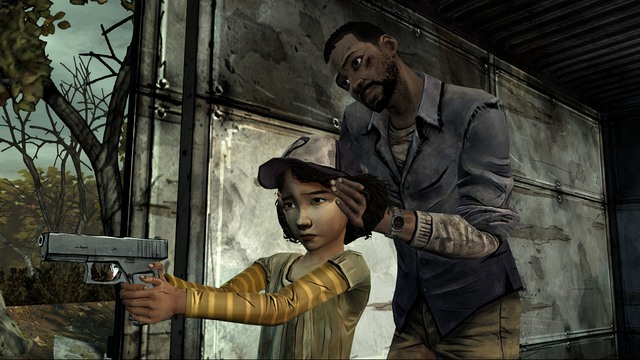
Fortunately, what's worrisome for the creators can be a blessing for the players. The golden era of the adventure games from the '90s has passed, sure. Yet after more than a decade there's finally a chance for some kind of renaissance. Daedalic Entertainment desires to be a part of such movement or even become its leader. The German studio has it all – it has definitely more experience than the rest of the producers and its latest projects proof that being afraid of innovations is not an option. "I think now is a little transition time. [People] have forgotten, how fun adventure games can be, especially if they're designed the right way" – sums up Claas and it’s not a hard puzzle to solve: Daedalic Entertainment is gonna deliver again.


